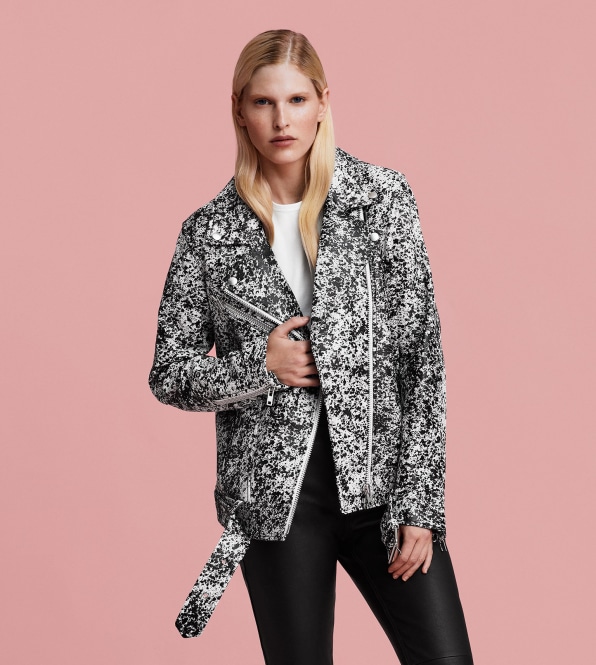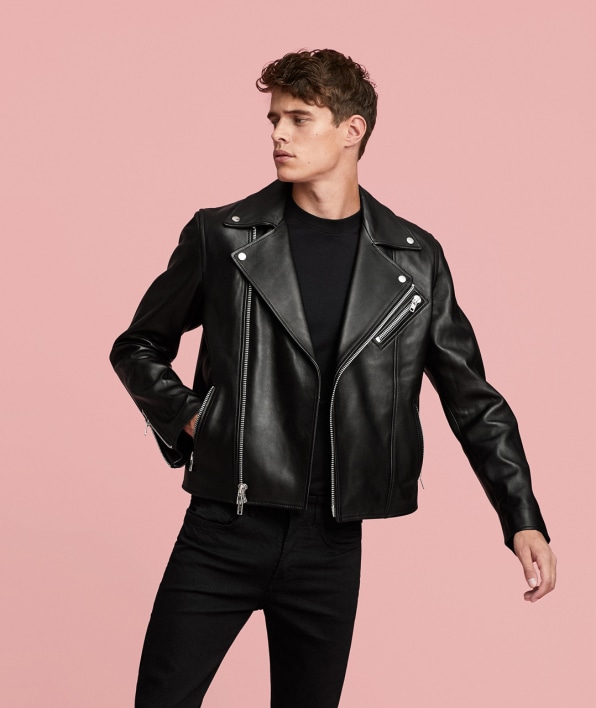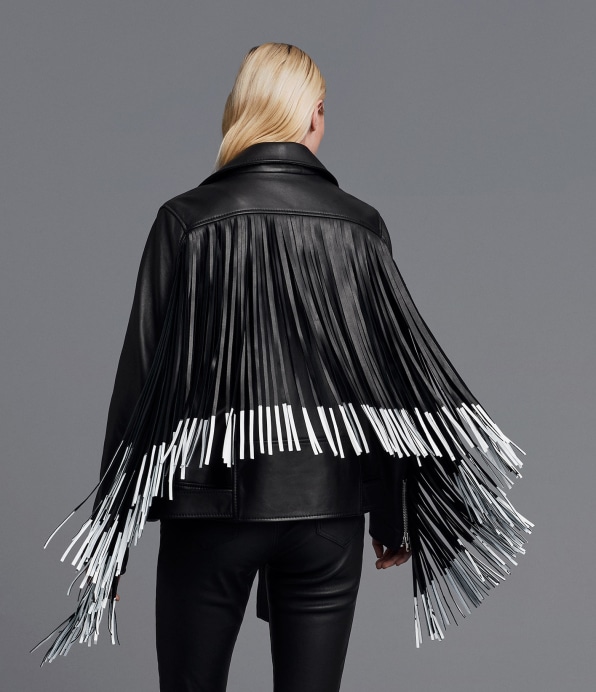At H&M’s new youth-oriented /Nyden label, fashion designers are out, and entertainers and sports heroes are in. While the concept is nothing new (think Venus Williams and Kanye West), /Nyden’s approach is. Instead of building around one big name, the brand is turning to a series of celebs who have passionate followers—or “tribes.”
The most recent is British-Albanian singing sensation Dua Lipa. If you haven’t heard of her, it’s probably because you’re not part of her tribe. The 22-year-old, who launched her career on YouTube and has 12 million Instagram followers, mostly from the gen Z set, is partnering with /Nyden to create a “capsule collection” expected to resonate with her fans.
Besides Lipa, /Nyden has also locked down German soccer defender Jérôme Boateng and Justine Skye, a Los Angeles-based singer/songwriter. The brand has also hinted that other co-creators might include tattoo artist Doctor Woo, and Swedish actress Naomi Rapace.

It’s all part of a creative evolution at /Nyden as it shifts from in-house designs to its tribes concept. The brand quietly launched in January and been teasing where it’s heading on Instagram and through email newsletters. In April, it released black-and-white T-shirts emblazoned with the word “tribe,” and others with images with the brand name. This week, it released another collection, mostly of leather jackets with bold details like studs and fringes, as well as hoodies and T-shirts featuring animal images.
The leather collection is the last one that is not created in collaboration with /Nyden’s growing stable of celeb influencers, who will use their social media followings to announce when their capsule lines drop. The mastermind behind the business strategy is five-year H&M veteran Oscar Olsson, who is molding /Nyden to respond to the way that young people shop today.
The stakes couldn’t be higher for H&M. The Swedish company has been in a downward slump, with sales plummeting 14% last year, leaving a $4.3 billion pile of unsold clothes. H&M pioneered fast fashion, the concept of quickly churning out cheap knock-offs of runway styles. It was a winning concept in the ’90s and last decade, but in the current retail climate, H&M isn’t clicking with consumers.
To say that the tattooed and bearded Olsson thinks out of the box is an understatement. He once entertained the notion that the world might just be a hologram—you know, like The Matrix; and finds inspiration not from other fashion houses but, rather, entrepreneurs like Elon Musk and the late Steve Jobs. He most recently headed up H&M’s Innovation Lab.

At the heart of /Nyden is the idea that fashion is no longer about designers telling us what to wear. Instead, trends bubble up from communities of people, each with their own unique tastes and sensibilities, who gravitate toward influencers who reflect their style, like Lipa or Boateng.
“To become more relevant to a young audience, we want to try to design fashion together with them,” he says. “The power is shifting from a brand into the people. And people have been structured from the earliest of times in what we call tribes.”
Olsson believes that a brand’s responsibility is to create clothes that respond to these subcultures. Olsson explains that the slash at the start of the brand’s name actually refers to this idea of co-creation—think Lipa/Nyden. (That’s one mystery solved.)
“Among a group of a hundred people, there are just a few that inspire others on style and fashion,” he says. “We want to invite those tribe leaders into the process and give them a platform to tell interesting and authentic stories to their audiences.”
Even though /Nyden’s goal is to highlight the diverse tastes and aesthetics of a wide range of different tribes, Olsson says that there will be a unifying thread in everything it makes. It’s hard to identify what this underlying aesthetic is, since the brand has only released two collections so far, but he promises that it will be there.
“We want to be as elastic as we can be, while still having the voice of /Nyden,” he says. “/Nyden has its own ethics and personality, which is all about empowering these tribe leaders. You will be able to recognize the /Nyden soul across the different capsules.”

It makes sense that H&M would give birth to a brand like /Nyden. In many ways, Olsson’s brand is an updated version of fast fashion. Rather than drawing inspiration from top designers, it is making clothes based on of-the-moment trends in real communities around the world.
This also involves putting out collections quickly, so they are responding to consumers’ immediate needs. But there are risks that come along with making clothes so quickly. Part of the reason consumers have lost their appetite for fast fashion is that there has been a growing awareness about the devastating impact it has on workers and the environment. Some consumers are also annoyed by how quickly these cheaply made garments fall apart.
H&M has responded to these concerns by investing heavily in developing a sustainable supply chain and offering transparency into the way it treats workers. It has also recently launched a new brand called ARKET that focuses on creating reasonably priced garments of the highest quality. Olsson says that /Nyden will be able to take advantage of H&M’s logistics to create ethical and durable clothing.
“I think the word “relevant” is better than “fast,” Olsson says. “All fashion in the future will be fast, so that will not be enough to differentiate you. The future is more about authentic movements that are connecting deeply with groups of consumers.”
No comments:
Post a Comment